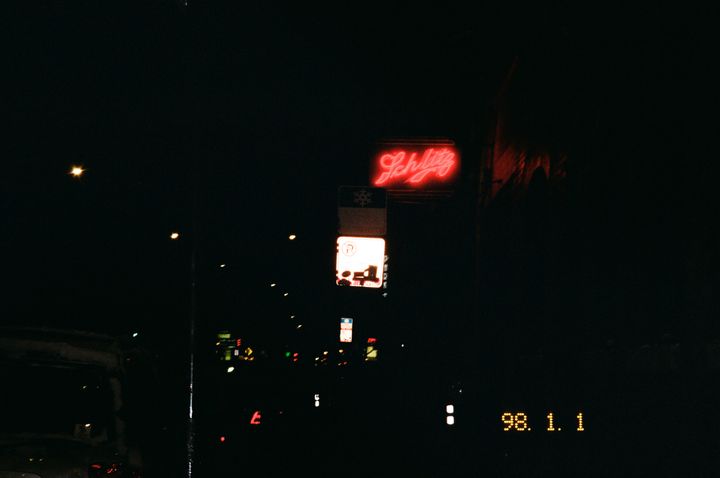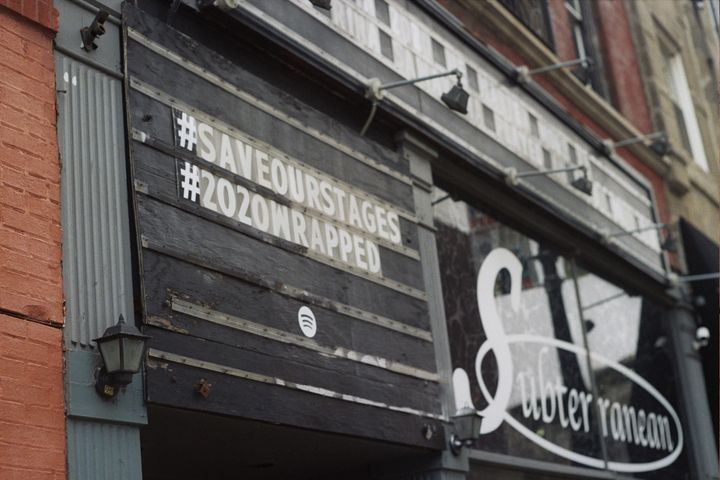on me & mia by ted leo + a shifting relationship with lyrics
Discussing why a song Works For Me and complaining about the music promotion industrial complex's focus on trauma

Someone replied to a tweet I made about Foxing on the day of its Pitchfork review that the lyrics were lacking in depth. It’s not a thought that had crossed my mind and one that still doesn’t. Foxing for me is all about feeling and almost nothing about lyrics. I don’t think I’ve really paid much attention to their lyrics since I was seeing them play a support slot for Modern Baseball and screaming the words to “Rory” at Conor.
I find increasingly little value in confessional lyricism. It’s been a shift in the way I think about music that I’ve thought a lot about, but I think emo has always appealed to me in a feeling first, words second kind of way. I don’t find most of the emo I listen to regularly to be particularly sad or focused on lyrics. I think the turn toward emotional, interior pop music and all that “devastating” indie music has really forced me to face that rarely what I like about music is really rooted in being moved by lyrics. I’m repelled even more by the way mental illness (or “mental health” for those who are not mentally ill) has become wrapped up in the way pop and big indie music are promoted then subsequently discussed online. As artists become parasocial figures (whether it’s their fault or not) in the way influencers are, the discourse around romantic depressive garbage has only gotten worse. Depression and anxiety get the worst of it with all the “Phoebe Bridgers is Taylor Swift for girls with depression” style tweets. Tweets just talking about how people are gonna be devastated by a Lucy Dacus song or whatever are just as irritating. But I think it goes further than that in the general sphere of internet discussion. As millennials get older I’ve seen more minimizing of eating disorders as just something women who lived in the diet cultures of the 90s and 2000s went through. I think there is some truth to having a negative relationship with food due to the cultural zeitgeist, but I find the flippancy repellant nonetheless. There is delicate balance in not being ashamed of your experience while remaining responsible. There’s nothing positive— particularly for young people— in saying everybody’s going through the same thing. Particularly not when all over TikTok there are waves of pro-anorexia content and abhorrent comment sections tearing apart women's bodies.
But I digress.
I’m repelled by sleek, trauma porn soaked emotional music and the way it’s marketed. I'm repelled by the way it seeps into an already gross online discussion of mental health and music. Maybe as a result of feeling incapable of escaping that, I’m repelled by an over-focus on lyrics and despair.
At the same time, I’ve given a lot of thought to a song I've found myself listening to constantly called “Me and Mia” by Ted Leo and the Pharmacists. It is the most popular Ted Leo song and a song that’s incredibly on the nose on a topic close to me. I’ve been considering what it is about this song that works so well for me as I personally trend away from trying to find people to articulate feelings explicitly.
“Me and Mia” is a song in a slim subgenre of songs about eating disorders. It’s also a power pop banger, which is important. On twitter a while back I saw several people talking about how their minds were blown when they found out the song was referencing eating disorders which kind of blew MY mind. I guess maybe if you just don’t read lyrics at all I could understand that, or if you’re just totally oblivious, but to me it’s glaring.
What’s always struck me first is the personification of anorexia and bulimia in the use of names. “Not doctors, nor your Mom and Dad / but Me and Mia, Ann and Ana / Know how hard you try.” Any self conscious teen girl familiar with the internet is aware of so called “pro ana” (anorexia) and “pro mia” (bulimia) internet communities where users encourage people to view recovery as failure.
Typically, those kinds of communities have embraced cute drawings of thin people to “motivate” themselves through this personification. On the flip side of that, my own experience in treatment was that my therapists encouraged us to call our eating disorders “Ed” (like Edward) in order to make some kind of separation and not see our disorders as intrinsic to ourselves. Putting thoughts you’re having outside yourself like that can be powerful and hearing it played with the way this song does is both catchy and resonates with me in a way few things can. The song’s central theme around control feels much the same.
There’s this feeling of reaching for a goal through self control and losing yourself the longer it goes on that is intimately familiar. To me, the tone of the song feels very aligned with the erratic way your brain tricks you when you’re entrapped in an eating disorder. “More dead but more alive.” That feeling of being both eaten alive and propelled by your disorder being juxtaposed against fasting as a protest method shatters the proposed self control as something beautiful and noble. Its masterful lyric writing and Ted Leo’s moments of vocal fragility inside a fast-paced power pop song only add to the thematic complexity.
“Fighting for the smallest goal / To get a little self-control / Won't anybody here / Just let you disappear?”
I think the song viscerally depicts the way I both experienced and have processed my eating disorder without making it this unlistenable pit of sorrow and pain. The power of the song is in the propulsion. The alternating fading fatigue and visceral grossness of my decade long eating disorder feels closer to this than to the frailty eating disorders typically find themselves portrayed as in media. My eating disorder was all encompassing. Recovery was never linear. It’s always been cycles of feeling okay then feeling totally disconnected then purging to shock myself into my own body again. It’s a weird and horrible cycle, but it’s not sad. I don’t feel despair and I get nothing out of inducing sadness about it. The whole experience feels gross and foreign and outside of myself. It’s always been about chasing control and comfort but finding just more cyclical pining to be better. I think that’s why I find “Me and Mia” compelling instead of annoying or repellant. It gets at that feeling without dropping into wallowing. There’s distance from beauty and I find some comfort in that.
Maybe it just connected recently because I’m not faced with discussing the person behind it. Or maybe it’s just that being able to listen to music and process and feel it on my own is just better for me. I don’t need— or want— to be told why I should connect and care about a piece of art.
Or maybe it’s just a power pop banger. Who's to say.
An earlier version of this piece was published via my podcast's bonus newsletter which you can access for $2 through our patreon. patreon.com/endlessscrollpod.
Miranda Reinert is a music adjacent writer, zine maker, and law school drop out based in Philadelphia. Follow me on Twitter to hear more about music and my momentary fixations: @mirandareinert. I also have a paid tier of this newsletter for $5 a month or $45 a year! If you do that I'll give you at least one free zine if you email me an address! Wow! Might want to get in on that! You may also just send me small bits of money at @miranda-reinert on venmo if you want. But as always, thanks for reading!



Comments ()